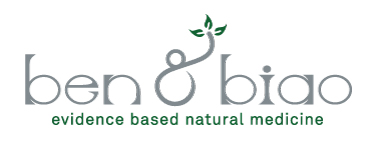Epigenetics and Preconception Nutrition
You may already know that good nutrition is really important during the preconception period for creating healthy eggs and sperm. You may also know that good nutrition is important for the health of your growing baby. But did you know that the food you eat prior to and during pregnancy influences the genetic expression of not only your baby, but your baby’s baby? Preconception nutrition has a multigenerational impact! Studies show that the nutritional status of the mother impacts herself, her baby and her child’s reproductive cells (therefore her baby’s baby) (1).
We know this via recent studies in epigenetics. Epigenetics refers to a series of complex processes that change genetic expression without changing the genes themselves. While we may be genetically predisposed to something, the expression of that gene can be influenced by nutrition (or specific nutrients), lifestyle and environment. The impact of nutrition on epigenetic response seems to be most influential during the first 1000 days of life – or from conception to 2 years old.
Both Mum and Dads health and nutritional status needs to be considered.
It is generally understood that optimum maternal health is essential in order to support healthy conception and pregnancy. What is sometimes overlooked, is the health of the father. But paternal health is of equal importance.
Studies have demonstrated that the nutritional conditions of paternal grandfathers influenced the metabolic health and longevity of their grandchildren (2). We have also seen that children of obese fathers are more likely to become obese (3, 4) – and this may be due to the fact that the sperm of obese men is epigenetically different to that of lean mean (4).
Excellent nutritional status is key in supporting paternal health to create optimal epigenetic expression in their baby. We know that optimum levels of zinc, vitamin C, selenium, folate and coQ10 are essential. Of course, maternal nutritional status is also essential in establishing optimal genetic expression for her baby; with B vitamins, iron, iodine, vitamin D, and choline being of particular importance.
While it is important to obtain all of the essential vitamins and minerals from a wholefoods diet of bountiful fruits and vegetables, proteins, wholegrains, nuts and seeds and healthy fats, nutritional demand is higher during the preconception period and supplementation may be required. Testing nutritional status during the preconception period is essential so that we can tailor a nutrition and supplement plan specific to you.
If you are planning a baby and would like some support nutritionally to ensure the healthiest outcomes for not only yourself but also your future baby (and your baby’s baby) please reach out and make an appointment with Chantelle
References
- Perera, F. & Herbstman, J. (2011). Prenatal environmental exposures, epigenetics and disease. Reproductive Toxicology, 31(3), 363-373.
- Vågero, D., Pinger, P.R., Aronsson, V. & van den Berg, G. J. (2018). Paternal grandfathers access to food predicts all-cause and cancer mortality in grandsons. Nature Communications, 9(5124).
- McPherson, N.O., Fullston, T., Aitkin, R. J. & Lane, M. (2014). Paternal obesity, interventions and mechanistic pathways to impaired health in offspring. Annals of Nutrition and Metabolism, 64(3-4), 231-238.
- Donkin, I., Versteyhe, S., Ingerslev, L. R., Qian, K., Mechta, M., NOrdkap, L., et al. (2016). Obesity and bariatric surgery drive epigenetic variation of spermatozoa in humans. Cell Metabolism, 23(2), 369-378.



